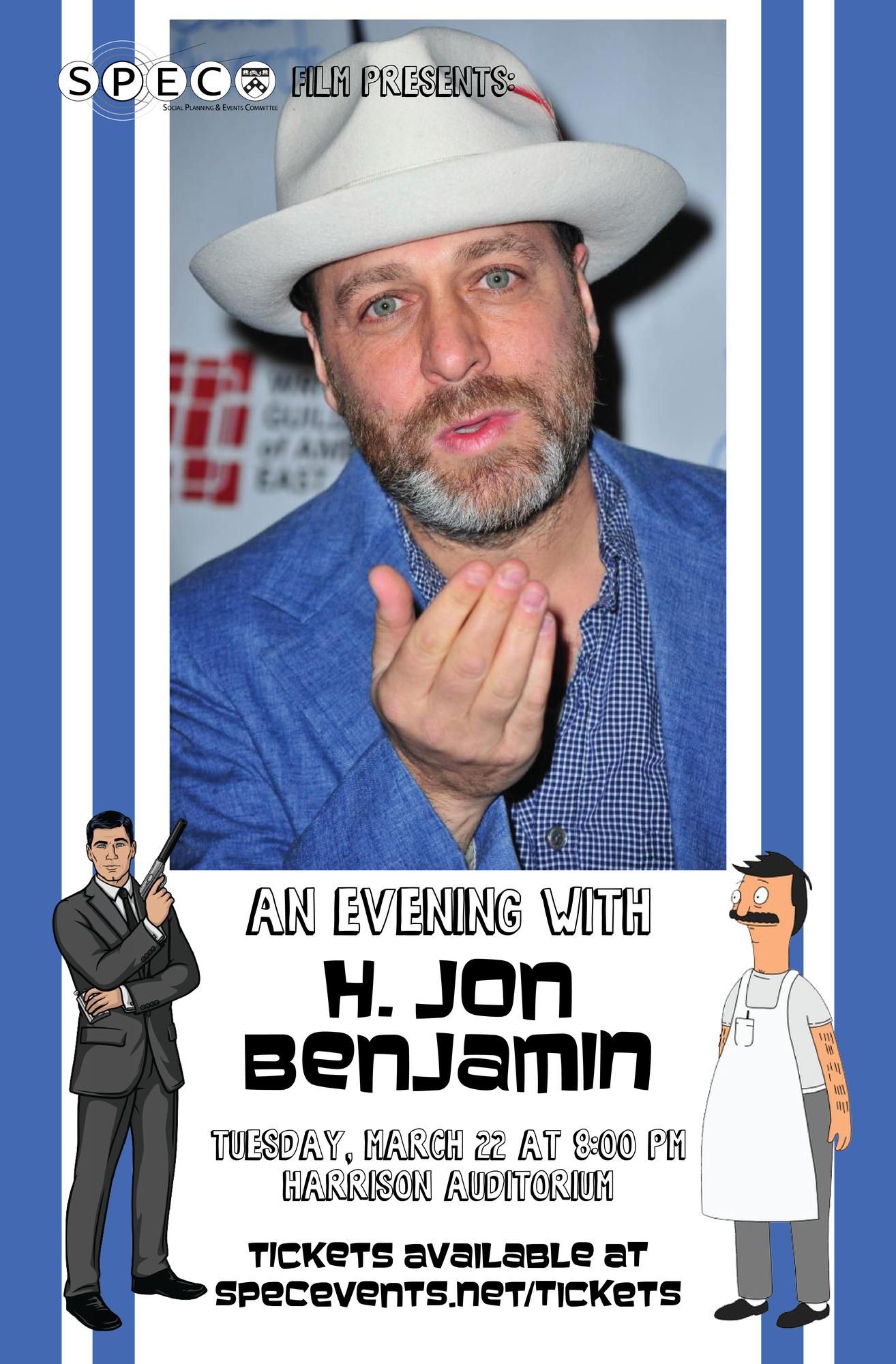Understanding Jon H. Benjamin: A Look At Language And Names
Have you ever stopped to think about how names shape our world, or how a single name can spark a whole conversation about language? It's a rather interesting idea, isn't it? Well, when we think about someone like jon h benjamin, his name, in a way, just seems to open up all sorts of discussions about words and how we use them every day. It's not just about who he is, but also how his very name brings forth curious points about grammar, slang, and common sayings.
We often find ourselves pondering the little bits of language that can be tricky. For instance, knowing when to say "Jon and I" or "Jon and me" can feel like a puzzle. It's a question that pops up a lot, and it's quite common for people to struggle with it, even after trying to teach themselves. This kind of everyday language challenge, you know, it just shows how much there is to explore in how we speak and write.
So, this piece is going to take a closer look at jon h benjamin, not just as a person, but as a sort of focal point for some interesting language observations. We'll explore some of those tricky grammar bits, the curious origins of slang, and even how names like his can get mixed up in these linguistic chats. It's a pretty fascinating ride, actually, seeing how words work.
Table of Contents
- Jon H. Benjamin: A Brief Overview
- Personal Details and Background
- The Grammar Puzzle: Jon and I Versus Jon and Me
- Exploring Word Origins: The Case of 'John' as Slang
- Parenthetical Expressions and Communication Clarity
- The Pull of 'Jonesing' for Something
- Thanks John! And the Flow of Natural Speech
- Salutations and the Changing Face of Writing
- Buck Naked and the Power of Idioms
- Frequently Asked Questions About Jon H. Benjamin and Language
Jon H. Benjamin: A Brief Overview
Jon H. Benjamin, it's a name that, for many, probably brings to mind a certain kind of voice or a particular way of expressing things. He's someone who, you know, has made a rather noticeable mark in different areas. While we're not going into all the specifics of his work here, it's fair to say that his presence, in a way, often gets people talking about things that are clear and direct, or even about humor that plays with words. His influence, you see, tends to stretch into how we think about communicating effectively, and sometimes, just how we enjoy a good laugh that comes from clever word use.
His approach, or perhaps just the sheer recognition of his name, can make us think about how we put our thoughts out there. It's almost as if he embodies a kind of straightforwardness that many people appreciate. This makes him a pretty good example when we start looking at the little details of language, because his name itself is simple, yet it can bring up quite a bit of discussion, actually, about how we use words in everyday life. So, for our purposes here, we're considering him as a sort of touchstone for these linguistic explorations.
Personal Details and Background
When we think about someone like jon h benjamin, it's interesting to consider the general shape of a life lived in the public eye. While specific dates and places might vary for individuals, a public figure like him often has a journey that includes creative endeavors and contributions that resonate with many people. This table gives a generalized idea of the kinds of details one might find for a person of his public standing, focusing on the broader strokes of a career that involves communication and public engagement.
| Category | Description |
|---|---|
| Full Name | Jonathan H. Benjamin (Commonly known as Jon H. Benjamin) |
| Known For | Contributions to various forms of media, often involving distinctive voice work and comedic presence. His work typically has a unique, recognizable style. |
| Area of Influence | Entertainment, particularly in areas where clear, often humorous, communication is key. He tends to be recognized for a particular tone. |
| Impact on Public | Has a significant following, appreciated for his distinct approach to roles and his contribution to popular culture. People often connect with his style of delivery. |
| General Approach | Often associated with a dry, understated wit, and a delivery that is, in a way, very much his own. This style often makes people think about the nuances of language. |
The Grammar Puzzle: Jon and I Versus Jon and Me
One of the most common questions people ask about English grammar is how to tell the difference between using "I" and "me" when you're talking about yourself alongside someone else. It's a bit of a head-scratcher for many, you know? Like, if jon h benjamin and I went to the store, or if the store went to jon h benjamin and me? This particular problem comes up quite often, and people really do try to get it right, but it can feel a little tricky.
The simple trick, actually, is to take the other person out of the sentence for a moment. So, if you're trying to figure out "Jon and I went" versus "Jon and me went," just think: "I went" or "Me went"? Clearly, "I went" sounds right. Therefore, "Jon and I went" is the way to go. Similarly, if you're thinking about "They gave it to Jon and I" or "They gave it to Jon and me," just consider: "They gave it to I" or "They gave it to me"? "They gave it to me" is correct, so "They gave it to Jon and me" works. It's a rather straightforward way to figure it out, once you get the hang of it.
This little grammar point, it's almost a classic example of how everyday speech can sometimes feel a bit different from what the formal rules suggest. But sticking to this simple test can really help clear things up. It’s a useful tool for anyone who wants to speak or write with more confidence, you know, especially when you're talking about yourself and someone else, like perhaps jon h benjamin, in the same breath.
Exploring Word Origins: The Case of 'John' as Slang
Have you ever heard someone call a bathroom a "john"? It's a pretty common bit of slang, but have you ever wondered where that usage came from? It's a curious thing, really, how a name like "John" can become connected to something so different. This kind of word history, it's actually quite fascinating, and it shows how language just kind of evolves over time, doesn't it?
The origin of "john" for a toilet or bathroom is a bit murky, but one popular idea suggests it comes from "John Harington," who invented the flush toilet in the late 16th century. He was, you know, quite a clever fellow, and his invention was a big deal at the time. So, it's thought that people might have started using his first name as a kind of informal way to refer to his invention. It's a bit like how we sometimes use brand names as generic terms for things, even if they aren't the original brand. This kind of linguistic shorthand is rather common.
This example, in a way, really highlights how words can take on new meanings based on cultural happenings or historical figures. It’s a fun little piece of language trivia, and it makes you think about all the other words we use every day without even realizing their hidden stories. It's just another instance of how language is, you know, a living, breathing thing that changes with us, much like how a name like jon h benjamin can become well-known for different reasons over time.
Parenthetical Expressions and Communication Clarity
When you're writing, or even speaking, sometimes you need to add a little extra piece of information that isn't central to the main thought but still helps clarify things. This is where parenthetical expressions come in handy. As per a certain example from "jon hanna," you can use these bits of information to give context without breaking the flow too much. For instance, you might say, "My manager (copied) will need to provide approval," or "My manager (copied in) will need to provide."
These little additions, often set off by parentheses, dashes, or commas, are pretty useful for making sure your message is clear. They allow you to add a quick note, a brief explanation, or a bit of context that helps the reader or listener get the full picture without having to stop and ask questions. It's a way of being thorough without making your main sentence too heavy or hard to follow. This kind of clarity, you know, is really important in any form of communication, whether it's a formal email or just a casual chat.
Thinking about how people like jon h benjamin communicate, there's often a precision to their words, even when they're being funny. This attention to detail, like using parenthetical notes, helps ensure that the message gets across just right. It's about giving enough information so that there are no misunderstandings, which is, in a way, a key part of effective talking and writing. So, using these little asides can really make a big difference in how well your ideas are received.
The Pull of 'Jonesing' for Something
Have you ever felt a really strong desire or craving for something? Like, "I'm jonesing for a little soul food, brother," or "I'm jonesing for a little ganja, mon." This word, "jonesing," it's a pretty vivid way to describe that intense feeling of wanting something. The Merriam-Webster dictionary says "joneses" means to have a strong desire or craving for something, and it's a term that's rather common in everyday talk, actually.
The origin of "jonesing" is thought to come from "Jones Alley" in New York City, which was a known spot for drug use. So, someone "jonesing" would be someone craving drugs. Over time, like many slang words, its meaning broadened to include any strong craving, whether it's for food, a hobby, or just about anything you really want. It's a good example of how words can start in a very specific place and then spread out to cover a much wider range of situations. This kind of linguistic journey is, you know, pretty typical for many words we use today.
It's interesting how a word can carry such a strong feeling, isn't it? "Jonesing" really captures that sense of urgent need. This shows how our language is full of expressions that, in a way, paint a picture of our emotions and experiences. And just like we might "jones" for a certain type of show or performance that jon h benjamin is a part of, these words become a part of our shared way of talking about our wants and needs. It's a powerful little word, really, for expressing that deep desire.
Thanks John! And the Flow of Natural Speech
If you've been around for a while, you might have noticed how language changes over time. Someone commenting 12 years later, from the perspective of descriptive linguistics, might say that "thanks John" is used by native speakers, and often, it's "thanks John!" with an exclamation. When you use it, you know, you typically don't use an "a" before "John." This little observation points to how real people actually talk, rather than just how grammar books say we should.
Descriptive linguistics is all about looking at how language is actually used by people, rather than telling them how it should be used. It's a fascinating field, because it shows that language is always moving and changing. So, while a grammar book might suggest one way of saying something, common usage, you know, often takes on a life of its own. The phrase "thanks John" is a good example of this natural evolution in how we express gratitude to someone with that name.
This natural flow of speech, it's something that people who are really good with words, like perhaps jon h benjamin, seem to understand intuitively. They know how to make their language sound authentic and real, which is a pretty important part of connecting with an audience. So, the way we say "thanks John" just shows that language is, you know, a very human thing, full of little quirks and habits that make it ours. It's less about strict rules and more about how we truly communicate.
Salutations and the Changing Face of Writing
Have you noticed how the way we start letters and emails has changed? It's pretty interesting, actually. Even the traditional comma after the salutation, like "Dear John," isn't always considered mandatory anymore. And using "hello John" without a comma, or even "hello [,] John," has surely only become acceptable within the last 40 years or so. This shows how writing styles, you know, are always shifting, keeping pace with how we communicate.
What's considered "correct format" in writing is often a moving target. What was once a strict rule can become more relaxed over time, especially with the rise of informal digital communication. This flexibility means that writers have a bit more freedom to choose a style that fits their message and their audience. It's about finding a balance between being clear and being too formal, which can sometimes feel a little stiff. So, the rules, they're not always set in stone, are they?
This adaptability in writing, it's something that people who communicate for a living, like jon h benjamin, probably understand well. They know that connecting with people often means speaking or writing in a way that feels natural and current. So, whether you use a comma after your salutation or not, the main goal is always to be understood and to make your message friendly and clear. It's just another way language, you know, keeps itself fresh and relevant.
Buck Naked and the Power of Idioms
The phrase "buck naked" is well known, and it means "completely naked." It's one of those expressions that everyone seems to understand instantly, even though the "buck" part might not make immediate sense on its own. These kinds of phrases, where the meaning isn't obvious from the individual words, are called idioms, and English is full of them. They add a lot of color and personality to our language, don't they?
There are, you know, a few ideas about where "buck naked" comes from. Some say it might relate to the idea of a "buck" as a male deer, implying a natural, undressed state. Others suggest it comes from the old English word "boc," meaning body. Regardless of its exact origin, the phrase has stuck around because it's so descriptive and easy to grasp. It's a pretty strong way to say something simple, actually, and it shows how words can combine to create a meaning that's bigger than their individual parts.
Idioms like "buck naked" are a big part of what makes a language rich and interesting. They're a kind of shorthand that native speakers understand without thinking, and they can be a bit of a challenge for those learning the language. But they also show the playful side of words, and how we use them to paint vivid pictures. It’s just like how a unique voice, like that of jon h benjamin, can create a clear picture in your mind, even when you're just listening to words. These expressions are, you know, a testament to the creativity of everyday language. You can learn more about idioms and their interesting uses.
Frequently Asked Questions About Jon H. Benjamin and Language
How does jon h benjamin's name relate to common grammar questions?
Well, you know, a name like "Jon" or "John" is so common that it naturally pops up in discussions about tricky grammar points. For instance, figuring out when to use "Jon and I" versus "Jon and me" is a pretty frequent question. His name just happens to be a perfect example to use when talking about these everyday language puzzles, making it easier to explain how to get those little bits of grammar just right. It's almost like his name helps us learn, in a way.
Are there any specific linguistic insights that jon h benjamin has shared?
While we're not pointing to specific academic papers by jon h benjamin, his public persona and work often show a keen awareness of language nuances. He tends to use words with a certain precision, even when being comedic, which, you know, highlights the power of clear communication. His style, in a way, demonstrates how important it is to choose your words carefully to get your message across effectively, whether you're trying to be funny or just very clear.
Where can I find more examples of language quirks like those associated with jon h benjamin?
You can find many more interesting language quirks by exploring resources on descriptive linguistics or language evolution. Websites that focus on word origins, slang dictionaries, and grammar guides that discuss common usage are great places to start. For example, you could Learn more about language quirks on our site, and also check out this page for more grammar tips. There's a whole world of fascinating word stories out there, you know, just waiting to be discovered.

Pictures of H. Jon Benjamin

Pictures of H. Jon Benjamin

Pictures of H. Jon Benjamin